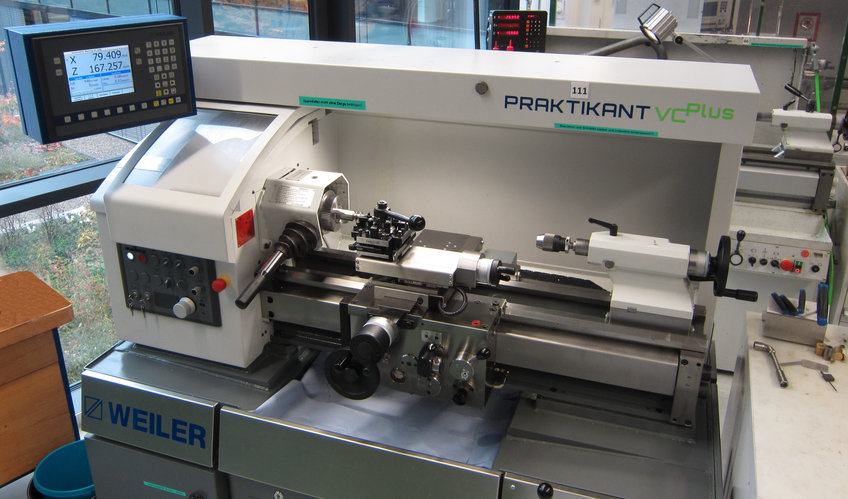
Industrial mechanic for precision mechanics
During the training at the Max Planck Institute for Solar System Research, apprentices learn how to process various materials manually and with machines, how to operate conventional and computer-aided (CNC) milling machines and lathes, and how to set up pneumatic circuits. During their training, apprentices will also deal with exceptional materials such as titanium, tungsten, invar and vacuum-resistant plastics, which are particularly important for space research.
Requirements
Careful and accurate work is very important for industrial mechanics in order to finish workpieces with an accuracy of 1/100 mm and to perform quality controls. Good technical understanding is a prerequisite for operating different machine tools as well as for understanding the necessary technical documents and the basics of electrical engineering and control technology.
In addition to an intermediate secondary school certificate (Realschulabschluss), good grades in mathematics and physics are required, e.g. for converting values from calculation tables and for understanding technical mathematical and physical calculations required to manufacture workpieces. Basic knowledge of computer technology helps to get started with CNC technology; command of English is an advantage and facilitates collaboration with foreign colleagues.